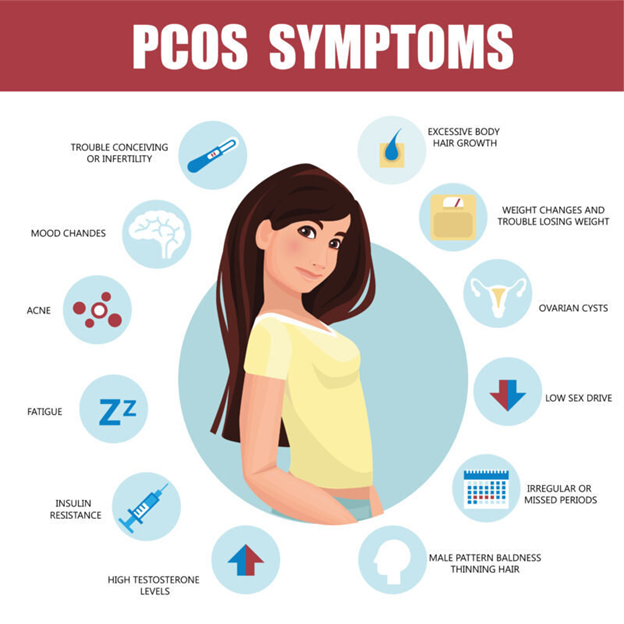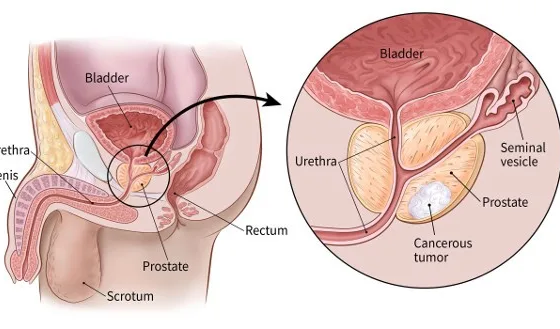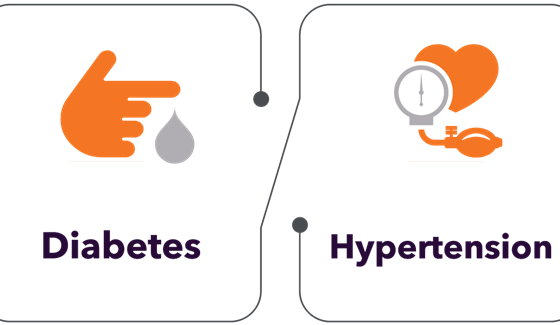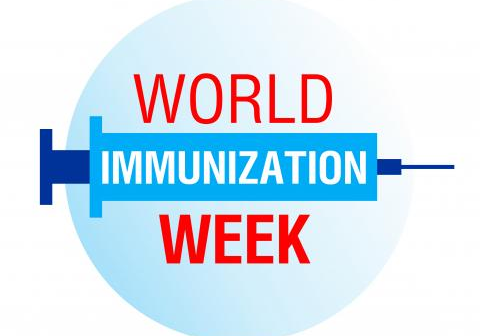Introduction
Have you recently been diagnosed with PCOS? Do you have a friend, partner, or family member who was diagnosed with PCOS? Or Are you concerned you might have PCOS? This article is right for you and would help educate you and your loved ones about this condition.
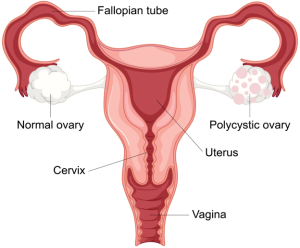
Source: Health Direct
Polycystic Ovary Syndrome (PCOS) is a hormonal disorder that affects many women of reproductive age globally. In Nigeria, research reports that about 18% of Nigerian women have PCOS, and PCOS can be seen in one out of six infertile women. It is said to be one of the leading causes of infertility in Nigerian women.
Despite its prevalence, we understand that PCOS remains a misunderstood condition, often covered in myths and misconceptions in Nigerian society. This article will explain this condition and provide general information about PCOS.
What is PCOS?
Polycystic Ovary Syndrome is a hormonal disorder defined by an imbalance of reproductive hormones, which causes a variety of symptoms and health problems. PCOS primarily affects the female reproductive organ responsible for egg production- your ovaries.
Multiple researches in women have shown that PCOS begins just after puberty, although maybe without symptoms, it is often diagnosed when women are trying to get pregnant. Symptoms become more apparent in adulthood, and they normally improve after menopause. It is worth noting that the symptoms never completely disappear but many therapies can help you become pregnant or manage your symptoms in the interim.
PCOS has 3 main features and women with 2 out of these 3 features can be diagnosed with PCOS. The features are:
- irregular periods,
- high levels of “male” hormone (androgen) – which leads to visible symptoms such as excessive face or body hair, and
- polycystic ovaries – enlarged ovaries that surround eggs with numerous fluid-filled sacs (follicles).
The term ‘Polycystic Ovary Syndrome‘ refers to the presence of many tiny cysts on the ovaries; however, not all women with PCOS have these cysts.
Symptoms of Polycystic Ovary Syndrome
The late teens and early 20s are typically when PCOS symptoms first manifest. The symptoms include:
- irregular or nonexistent menstrual cycles,
- inability to conceive due to irregular or nonexistent ovulation,
- hirsutism, or excessive hair growth, is typically seen on the face, chest, back, or buttocks.
- obesity, weight increase, or difficulty with weight loss,
- oily skin or acne,
- darkened skin around the under the breasts, arms, or neck,
- thinning hair and hair loss on the head,
- type 2 diabetes,
- high cholesterol, and
- mood changes- mood swings, anxiety, or depression.
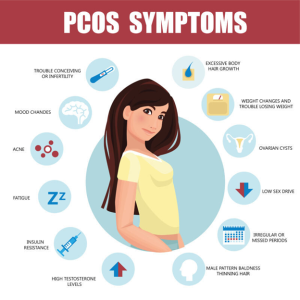
Risk Factors and Causes of PCOS
The precise cause of PCOS is unknown. However, several risk factors predispose you to developing PCOS.
- Genetic: Although the science behind genetic predisposition is unclear, PCOS has a genetic component as it frequently runs in families. If any of your near relatives (mother or sister) have it, you have a higher chance of getting PCOS.
- Insulin resistance: The hormone insulin regulates the body’s sugar levels. PCOS is associated with aberrant hormone levels, particularly elevated insulin levels. To overcome their bodies’ resistance to the effects of insulin, many women with PCOS create larger amounts of the hormone. The ability of your ovaries to release eggs (ovulate) may be impacted by excess insulin. It may also make weight gain easy and weight loss more difficult.
- Hyperandrogenism: Also known as elevated androgen levels. Testosterone/androgen is produced and activated at high levels in this condition.
- Obesity: Obesity works in conjunction with high levels of insulin in predisposing you to PCOS, a fat or overweight person’s body produces more insulin and excess insulin has been implicated as a risk factor for PCOS.
How is PCOS Diagnosed?
PCOS is diagnosed by a gynaecologist, through a combination of blood tests, physical examination, ultrasound imaging, and medical history.
Usually, the diagnostic criteria consist of a minimum of two of the following:
- missing or irregular menstrual cycles,
- elevated blood androgen/testosterone levels, and
- on ultrasonography, polycystic ovaries are apparent.
Management of PCOS
Although PCOS has no known treatment, its symptoms can be efficiently managed in several ways:
- Lifestyle Modifications: Lifestyle modification in PCOS management is exercise and nutrition necessary for controlling PCOS symptoms. Maintaining a healthy weight and enhancing insulin sensitivity can be achieved with a balanced diet low in refined carbs coupled with frequent exercise.
- Medications: Hormonal birth control tablets, progestin therapy, androgen blockers, and insulin-sensitizing drugs are used for the management of PCOS as prescribed by your doctor. Birth control tablets can lower testosterone levels and control menstrual cycles. Metformin is one of the several drugs that can help control insulin resistance. Androgen blockers inhibit the effects of excess male hormones, which lead to acne and undesired hair growth.
- Fertility Treatments: It is still very possible to get pregnant with PCOS, it is made easier with the use of medication to induce ovulation, or assisted reproductive technologies (ART) like In-Vitro Fertilization (IVF). can be helpful for women who are having trouble becoming pregnant.
- Mental Health Support: PCOS can affect your mental health, resulting in conditions including anxiety and sadness. Consulting a mental health expert for support is crucial.
Conclusion
To conclude the ovaries are impacted by a hormonal disorder called polycystic ovarian syndrome, or PCOS. It is a common cause of infertility that disrupts your menstrual cycle, gives your hair and skin problems, and multiple cysts surrounding your eggs. There is no known cause or cure, but there are management protocols customized for just you that can lessen discomfort and aid in conception.
Because PCOS is a complicated disorder and affects about 1 in 6 Nigerian women, we must continue to raise awareness, and create supporting communities for all women. WellaHealth provides educative resources, affordable health care plans with consultations, full assessment/tests, and customized treatment plans from licensed physicians for as low as #600/month. Contact us on WhatsApp to subscribe to any of our plans today!
Dr. Ifeoma M. Uduh, Dr. John Afam-Osemene
